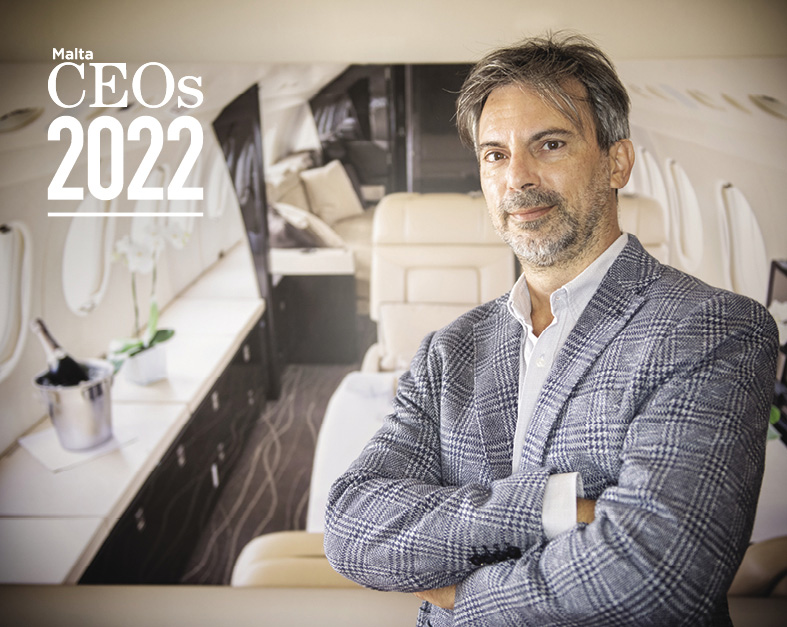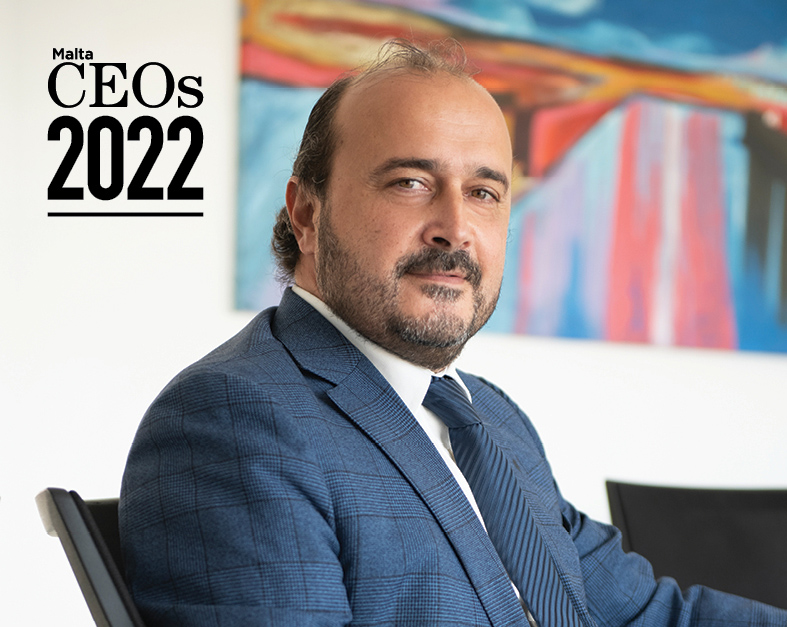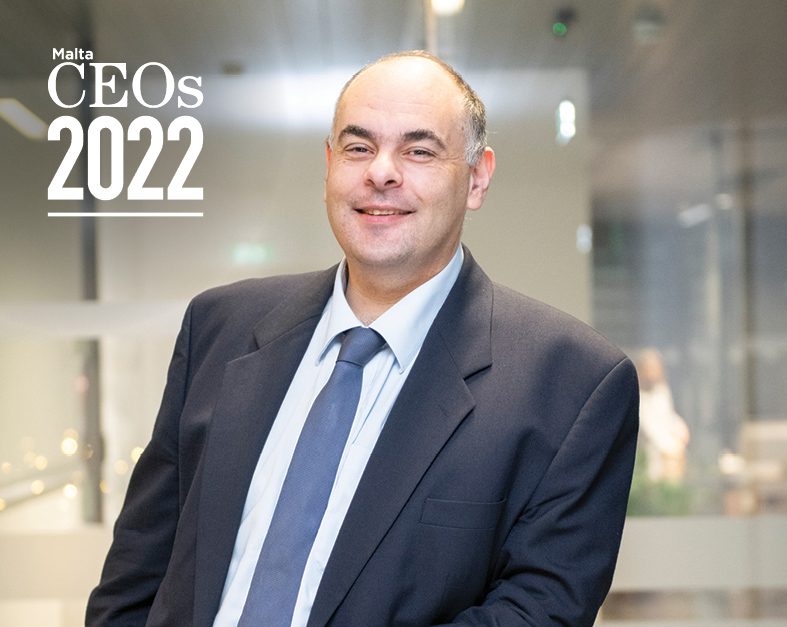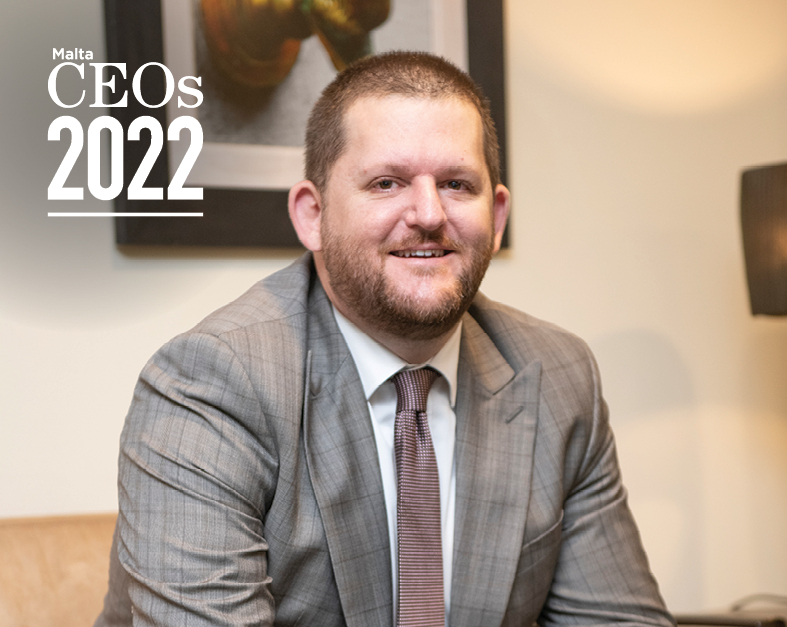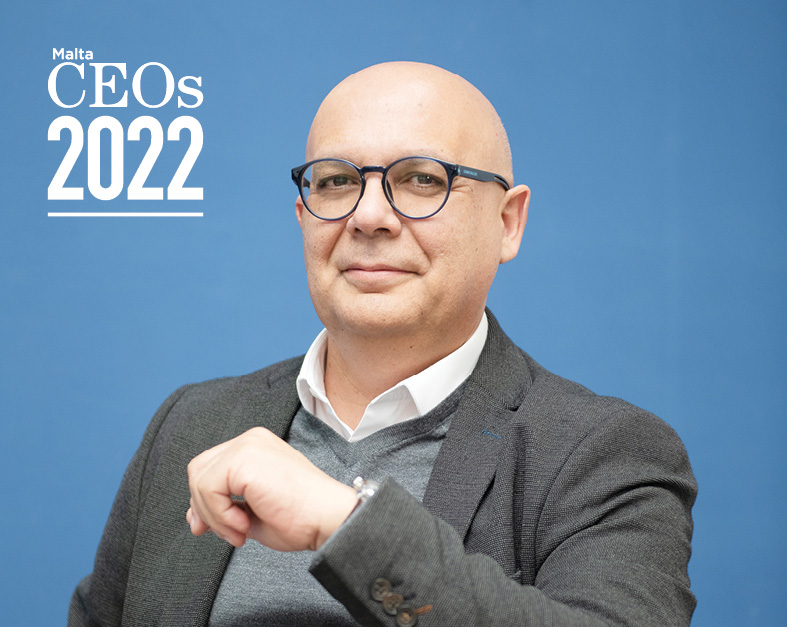As Managing Director of DC Aviation Malta, Stanley Bugeja has built up his jet handling and operating company over nearly two decades. Now, he is gearing up for what may be his biggest challenge yet: can corporate aviation transform itself into a sustainable, environmentally responsible industry?
Stanley Bugeja never dreamed of aviation as a child. Back then, his dream was very different. “I used to play and coach volleyball, and I wanted to make a living out of it – which sounds crazy,” he admits with a smile. When that didn’t work out, he took, as he puts it, the very first job he could find, which just happened to be in aviation. But today, running a successful business handling and operating business jets for high-net-worth individuals and organisations, he can’t imagine himself doing anything else.
“Once you catch the aviation bug, you’re stuck with it for life,” he laughs. “What I love about it is that no two days are the same. With a scheduled airline, you might know a year in advance which routes you’re going to be flying with which aircraft at which time; in our case, we never know what – or where – we’ll be flying the following week. And while most airlines focus on a specific region, in business aviation, our licences are worldwide: we’re in South America one day and Asia the next. That’s challenging, but also very exciting.”

Having got his start working in operations for an air taxi operator, Stanley quickly branched out and started his own company in 2002, dealing with aircraft charter brokerage and business jet handling, before selling the company to DC Aviation, one of the largest business jet operators in Europe, in 2008. “I was actually headhunted and asked to move to Germany,” he recalls. “But instead, I proposed that my small boutique aviation company could give them an outpost in Malta, while benefiting from the brand.”
The company’s growth has been significant: from handling 11 aircraft a year when Stanley began to around 1,100 today. DC Aviation Malta has since also developed into an operator, with three aircraft on the Maltese licence based out of Ukraine, the UK and Russia. Stanley himself also formed the Malta Business Aviation Association, of which he’s been President ever since, and joined the European Business Aviation Association, now sitting on the Board.
As DC Aviation Malta’s Managing Director, and perhaps hearkening back to his volleyball days, Stanley describes his role at the helm as similar to that of a team coach. “I firmly believe in trust and in not micromanaging,” he says. “You need to surround yourself with people you trust to do their job. It’s about finding the value in bringing different talented people around a table, problem-solving and developing the business. I trust people and I try to share the benefits of my experience while learning from my colleagues’ own experiences and perspectives. You need to lead, but I try to lead by example.”
The corporate aviation sector in Malta has already seen huge growth, and Stanley fully expects that to continue in the years to come. “As the economy of the island continues to grow and diversify, particularly in the service industry where investors don’t necessarily have to be based here all the time, travel with business jets to and from Malta will increase,” he says, comparing the situation to the increase in yachts, superyachts and high-quality marinas in the country.
But the outbreak of the pandemic in 2020 represented the largest challenge Stanley has yet had to face, as flights were grounded and the company’s operations slowed to zero. The industry, he says, always had a ‘pandemic kit’ on board, and was ready to assess and mitigate risks, and work remotely when it could. But the stringent restrictions of the early stages of the pandemic were impossible to get around and hit business jets just as hard as airlines: “it doesn’t matter what you’re flying; if you can’t move, you can’t move,” Stanley says.

However, as Malta and the world started to open up again, Stanley says corporate aviation was better placed to come flying out of the gates. “By our very nature, we are more agile, and because airline connectivity has been significantly reduced, more people have come to us because they have no other option. For the first time since I’ve been in the industry, I don’t need to try and convince people about the value of the business. They’re coming to me because there’s literally no airline that will take them where they want to go. And for the businesses and individuals that can afford it, the advantages are obvious: efficiency, security, safety, health considerations, and an overall better appreciation of your time.”
Still, a return to pre-pandemic levels may be some way away. “For the first time since 9/11, the industry has had to deal with the fear of travelling,” Stanley says. “That was across the board, whether people were flying with business jets or commercial airlines. We’re seeing a strong recovery, and it’s getting back to where it was, but it’s not the same: unless you have to travel, I think the majority of people are still saying ‘not yet’.”
As he looks to the future, Stanley is “cautiously optimistic” about the outlook for business aviation. “I think there’s an opportunity for us because the airline industry will probably not recover fully until the end of 2023 or the start of 2024, so in this period it’s the right time to let the situation speak for us and to be there for anyone who needs our services.”
But at the same time, he is conscious of the difficulties that may lie ahead: foremost of which is sustainability. The undeserved status of the aviation industry (less than 3 per cent of global emissions) as a major polluter and contributor to climate change is something Stanley is keenly aware of as both a challenge and an opportunity. The challenge, he says, lies in the fact that cleaner technology is still a long way away; the opportunity, on the other hand, is in what can be done in the meantime.
“This is an opportunity for the smart organisation that goes the extra mile. People will often let others test the waters and wait until things even out, but that’s the way to miss opportunities. We’ve taken the bull by the horns and announced that we will be offsetting all the fuel uplifted by the business jets we handle: that’s around a million litres of fuel. We plan to continue offsetting until sustainable aviation fuel is available in Malta.”
Stanley says the Malta Business Aviation Association has already submitted a plan to local authorities on how sustainable aviation fuel can be introduced even sooner than required by the European Commission. Until then, he believes small measures like energy efficiency and paperless systems, which DC Aviation is actively embracing, can go a long way if widely adopted.

“I would like to see us as a living, successful example to the industry of a green aviation company. It may sound like an oxymoron, but I think it is possible to fly and still be environmentally and socially responsible,” he says.
“I’m passionate about the environment not out of guilt over what I do but because I truly believe there is so much we can do as businesses and individuals that can make a significant difference – if we take action today. I’m really passionate about delivering that message: ask what you can do, don’t postpone. It just takes enough people setting the example for us to turn the page.”
This article is part of the serialisation of 50 interviews featured in MaltaCEOs 2022 – an annual high-end publication bringing together some of the country’s most influential business leaders.
‘Networking is everything in our line of work’ – WES Trade CEO Alessio Bucaioni
MaltaCEOs 2022 serialisation: For seven years, WES Trade has helped an expansive range of clients internationalise their products and services.
‘Something can appear out of the blue and change everything’ – CEO Joseph Attard
MaltaCEOs 2022 serialisation: Unsurprisingly, given his technical background, Joseph’s approach is very hands-on.
‘Our key people help us provide the quality of service we expect’ – RiskCap CEO
MaltaCEOs 2022 serialisation: CEO Paul Magro counts building successful teams and opening an office in London among his achievement.
‘We’re the fourth busiest port in the Mediterranean’ – Malta Freeport Corporation CEO
MaltaCEOs 2022 serialisation: CEO David Magro is keenly aware of the responsibility his position carries.


